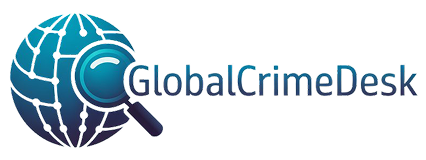OpenAI’s contentious plan to overhaul its corporate structure in favor of a conventional for-profit model has been reworked, with the AI giant bowing to pressure to keep its nonprofit in control, even as it presses ahead with parts of the restructuring.
OpenAI published a letter from CEO Sam Altman on Monday informing employees, stakeholders, and the public that while its for-profit subsidiary will transition into a Public Benefit Corporation (PBC), its nonprofit parent will remain in control.
“OpenAI was founded as a nonprofit, and is today overseen and controlled by that nonprofit,” OpenAI chairman Bret Taylor said in an introduction to Altman’s letter. “Going forward, it will continue to be overseen and controlled by that nonprofit.”
Both Taylor and Altman attributed the decision to retain nonprofit control, amid a broader restructuring effort announced in December, to conversations with civic leaders and the Attorneys General of California and Delaware.
The update comes weeks after a coalition of former OpenAI employees and AI researchers, including Geoffrey Hinton, wrote an open letter urging the AGs in those states to investigate whether the biz’s restructuring aligned with its nonprofit obligations.
We made the decision for the nonprofit to stay in control after hearing from civic leaders and having discussions with the offices of the Attorneys General
“We made the decision for the nonprofit to stay in control after hearing from civic leaders and having discussions with the offices of the Attorneys General,” Altman said. “We look forward to advancing the details of this plan in continued conversation with them, Microsoft, and our newly appointed nonprofit commissioners.”
Prior to today, OpenAI’s plan was to shift operational control toward the PBC, with the nonprofit continuing in a more limited oversight role. Signatories to the open letter expressed concern that such a change could undermine governance safeguards—like maintaining an independent board free from profit incentives and upholding capped investor returns.
OpenAI’s new plan may still not please everyone, as those capped investor returns are still being scrapped.
“Instead of our current complex capped-profit structure … we are moving to a normal capital structure where everyone has stock,” Altman said. “This is not a sale, but a change of structure to something simpler.”
Altman said that the capped-profit model made sense when it appeared that OpenAI might be the only viable firm attempting to reach artificial general intelligence, but it would only hamstring the firm “in a world of many great AGI companies.”
In order to ensure the nonprofit side of the biz remains in control, it’s going to become a large shareholder in the PBC through an unspecified amount of shares “supported by independent financial advisors,” Altman said.
“As the PBC grows, the nonprofit’s resources will grow, so it can do even more,” the OpenAI CEO added.
There will still be a profit incentive at the heart of the new OpenAI, in other words – just one that will ostensibly be curbed by the shareholder leadership of the nonprofit side of the company.
It’s unknown how the signatories to the open letter will regard the announced changes. We’ve reached out to the coalition that signed the letter for comment, but didn’t immediately hear back.
The decision may also affect estranged OpenAI cofounder Elon Musk’s ongoing lawsuit, which alleges OpenAI’s move toward a for-profit structure violated its original nonprofit commitments. We’ve reached out to both Musk and his legal team on the case for comment on the matter, but haven’t heard back. ®

